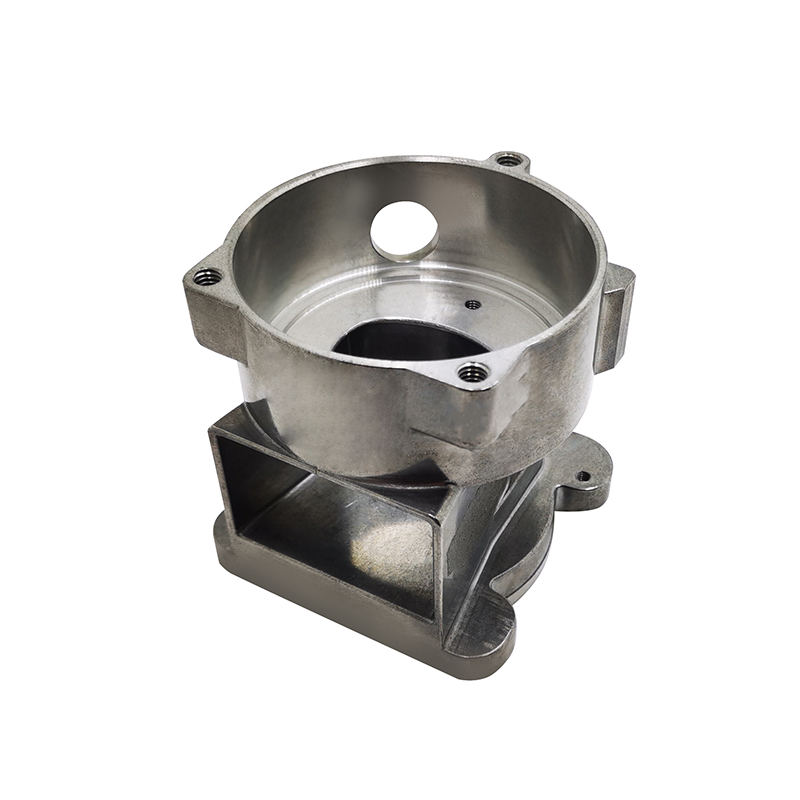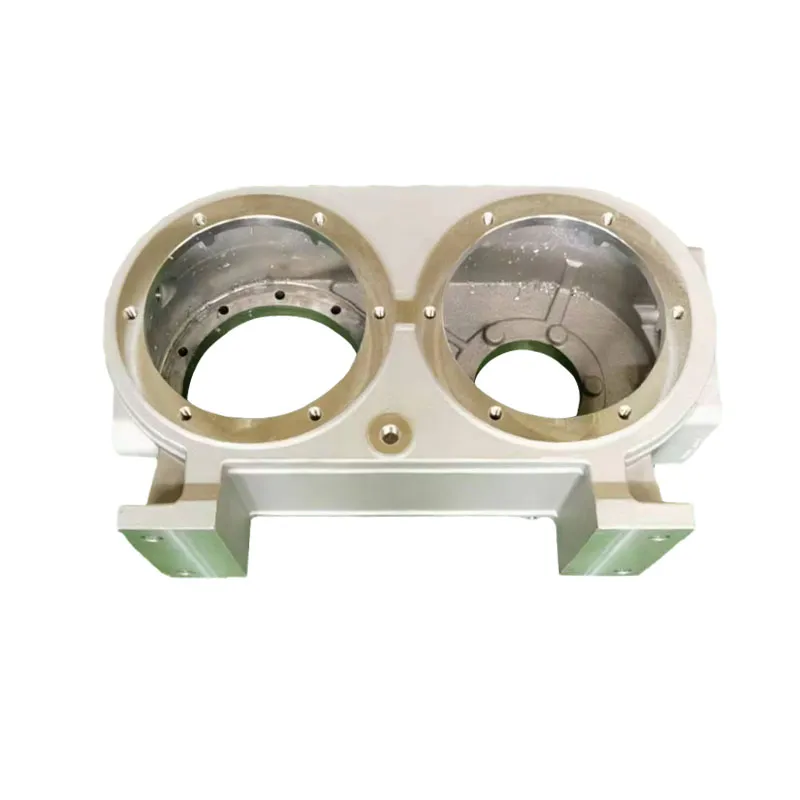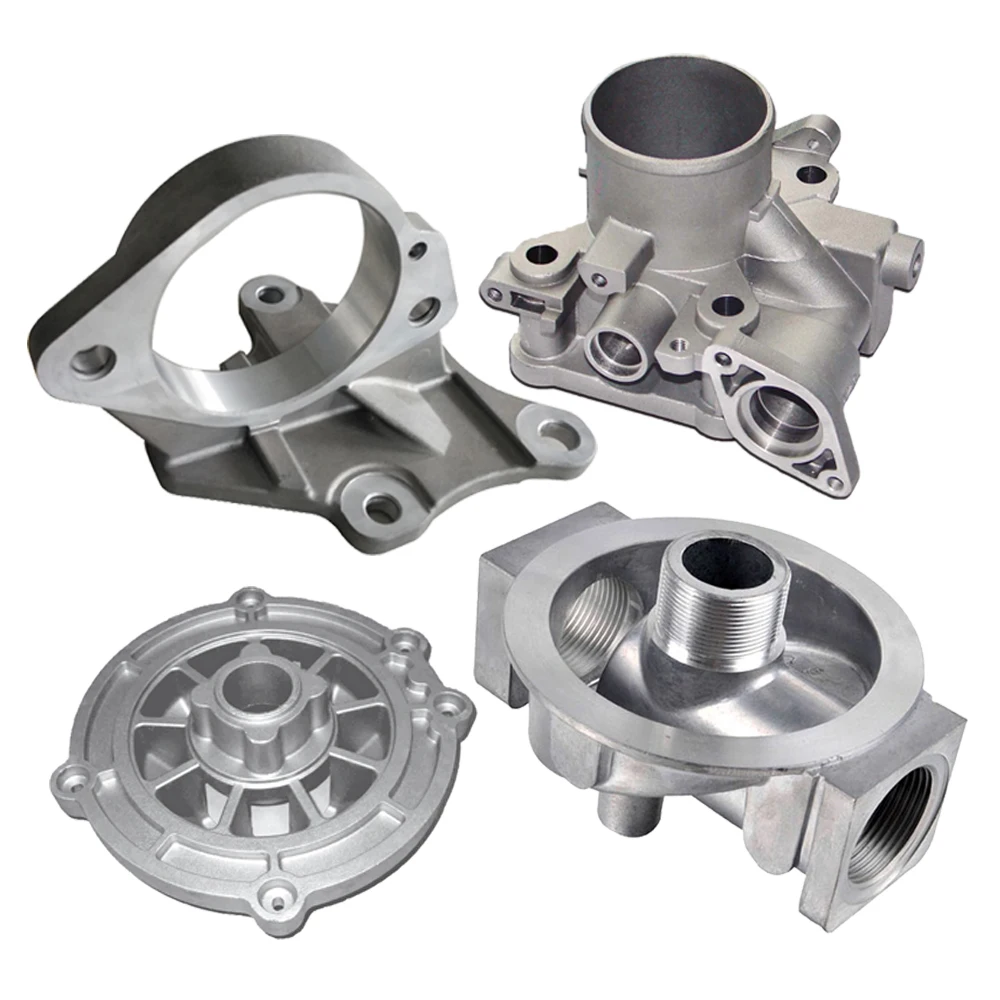The Duty of Aluminum Foundries beforehand Lightweight Production Solutions
Aluminum factories substantially contribute to the development of light-weight production remedies. Their ingenious casting innovations generate high-strength, lightweight elements crucial for sectors such as vehicle and aerospace. This improvement not just boosts product efficiency yet additionally advertises sustainability with the use of recycled materials. As these foundries adapt to arising methods and modern technologies, they lead the method for future advancements in producing effectiveness and ecological obligation. What lies in advance in this transformative trip?
The Benefits of Lightweight Materials in Manufacturing
As industries increasingly look for efficiency and sustainability, the adoption of light-weight materials in production has actually arised as an important approach - Aluminum Casting Company. These materials, specifically aluminum and composites, provide numerous benefits that enhance production procedures and product performance. Largely, their lowered weight adds to decrease power intake throughout transportation and operation, leading to substantial price savings
Lightweight products assist in the style of even more facility geometries, permitting for higher technology in product growth. This versatility frequently results in boosted performance and performance, dealing with the progressing demands of contemporary consumers.
Furthermore, the usage of light-weight products can improve the long life of items as a result of their resistance to deterioration and tiredness. This sturdiness not just minimizes maintenance costs yet likewise supports sustainability efforts, as longer-lasting items add to less waste. To summarize, the benefits of light-weight products are crucial in driving performance, development, and environmental duty in production.
Innovations in Aluminum Casting Technologies
Recent developments in aluminum casting technologies are changing the manufacturing landscape, particularly in the production of lightweight components. Advancements such as high-pressure die spreading and vacuum cleaner die casting have actually substantially enhanced the precision and surface area coating of aluminum parts - Precision aluminum casting. These techniques permit for the development of complicated geometries while lessening product waste and enhancing mechanical homes

Additionally, the application of real-time monitoring systems ensures quality assurance throughout the spreading procedure, leading to even more consistent item outcomes. Collectively, these technologies not just enhance the performance of light weight aluminum components however additionally sustain the sector's change in the direction of even more sustainable manufacturing methods.
Applications of Light Weight Aluminum Elements in Numerous Industries
While light weight aluminum parts have actually long been utilized in numerous markets, their versatility and lightweight residential properties remain to drive ingenious applications throughout fields such as automotive, aerospace, and building. In the auto sector, light weight aluminum is progressively made use of for engine blocks, wheels, and body panels, enhancing fuel efficiency and efficiency. Aerospace manufacturers leverage light weight aluminum for airplane frameworks and elements, maximizing its strength-to-weight ratio to enhance gas economy and payload capacity.
In the construction sector, light weight aluminum is preferred for window structures, roofing, and architectural aspects, offering resilience and resistance to rust while reducing overall structure weight. Additionally, the electric and electronics sectors profit from light weight aluminum's conductivity and lightweight nature, using it in circuitry, enclosures, and heat sinks. These varied applications highlight the essential function of light weight aluminum components, which not only fulfill sector demands yet additionally contribute to improvements in item design and performance across several areas.
Sustainability and Power Effectiveness in Aluminum Foundries
The light weight aluminum factory market plays an important function in advertising sustainability and power effectiveness, especially as need for lightweight elements remains to expand throughout various markets. Foundries are significantly go to my site taking on environmentally friendly practices, such as making use of recycled aluminum, which greatly lowers power usage and greenhouse gas discharges compared to main aluminum production.
Furthermore, improvements in casting technologies improve energy efficiency by maximizing the melting processes and minimizing waste. Methods like die casting and financial investment spreading enable exact material usage, reducing excess and scrap.
Additionally, many shops are buying renewable resource resources to power procedures, additionally decreasing their carbon footprint. Carrying out energy administration systems makes it possible for foundries to boost and keep track of power use, ensuring they run at peak efficiency.

Future Patterns in Lightweight Production Solutions
Just how will emerging modern technologies form the future of light-weight production remedies? Advancements such as sophisticated products, automation, and additive production are set to redefine manufacturing processes. The combination of smart manufacturing modern technologies, including the Web of Things (IoT) and synthetic knowledge (AI), will make it possible for real-time surveillance and optimization, improving performance and lowering waste.

As sustainability remains to be an extremely important problem, light-weight services will increasingly concentrate on recycling and reusing materials, aligning with circular economic climate principles. This advancement in light-weight manufacturing will not only enhance product performance but also add to ecological objectives, guaranteeing that the industry continues to be competitive in a rapidly changing market landscape.
Frequently Asked Inquiries
Exactly How Do Aluminum Foundries Make Sure High Quality Control in Production?
Light weight aluminum foundries guarantee high quality discover here control in production through strenuous testing, standardized procedures, and continuous surveillance - aluminum casting. They carry out experienced employees and sophisticated modern technologies to keep consistency, minimize issues, and meet market requirements throughout the manufacturing procedure
What Are the Key Tests Dealt With by Light Weight Aluminum Foundries?
Aluminum shops deal with obstacles such as varying raw material costs, preserving manufacturing performance, ensuring regular quality, adapting to technological improvements, and meeting environmental guidelines, all of which effect their general operational effectiveness and competition in the marketplace.
How Does Aluminum Recycling Effect Foundry Procedures?
Light weight aluminum recycling substantially enhances factory operations by minimizing raw product prices, decreasing energy consumption, and lowering ecological impact. This sustainable method allows factories to boost efficiency while fulfilling increasing demand for lightweight, high-performance light weight aluminum products.
What Skills Are Required for Employees in Aluminum Foundries?
Employees in light weight aluminum foundries require skills in metallurgy, machining, top quality control, page and safety techniques. Proficiency in operating machinery, comprehending alloy residential or commercial properties, and analytical are additionally essential for reliable production and maintaining high security criteria.
Exactly How Do Aluminum Foundries Deal With Waste Administration?
Aluminum foundries handle waste via recycling scrap steel, utilizing efficient waste partition strategies, and adhering to environmental regulations. They execute sustainable techniques to lessen garbage dump contributions, guaranteeing that hazardous products are gotten rid of responsibly.
Light weight aluminum foundries significantly contribute to the evolution of light-weight manufacturing solutions. Recent innovations in light weight aluminum casting technologies are transforming the production landscape, particularly in the manufacturing of light-weight elements. While aluminum components have actually long been used in different markets, their versatility and light-weight buildings continue to drive cutting-edge applications across markets such as automobile, aerospace, and construction. Furthermore, the electric and electronics markets profit from aluminum's conductivity and lightweight nature, utilizing it in wiring, rooms, and warmth sinks. The light weight aluminum shop market plays a crucial duty in promoting sustainability and power efficiency, particularly as demand for lightweight elements proceeds to expand throughout different markets.